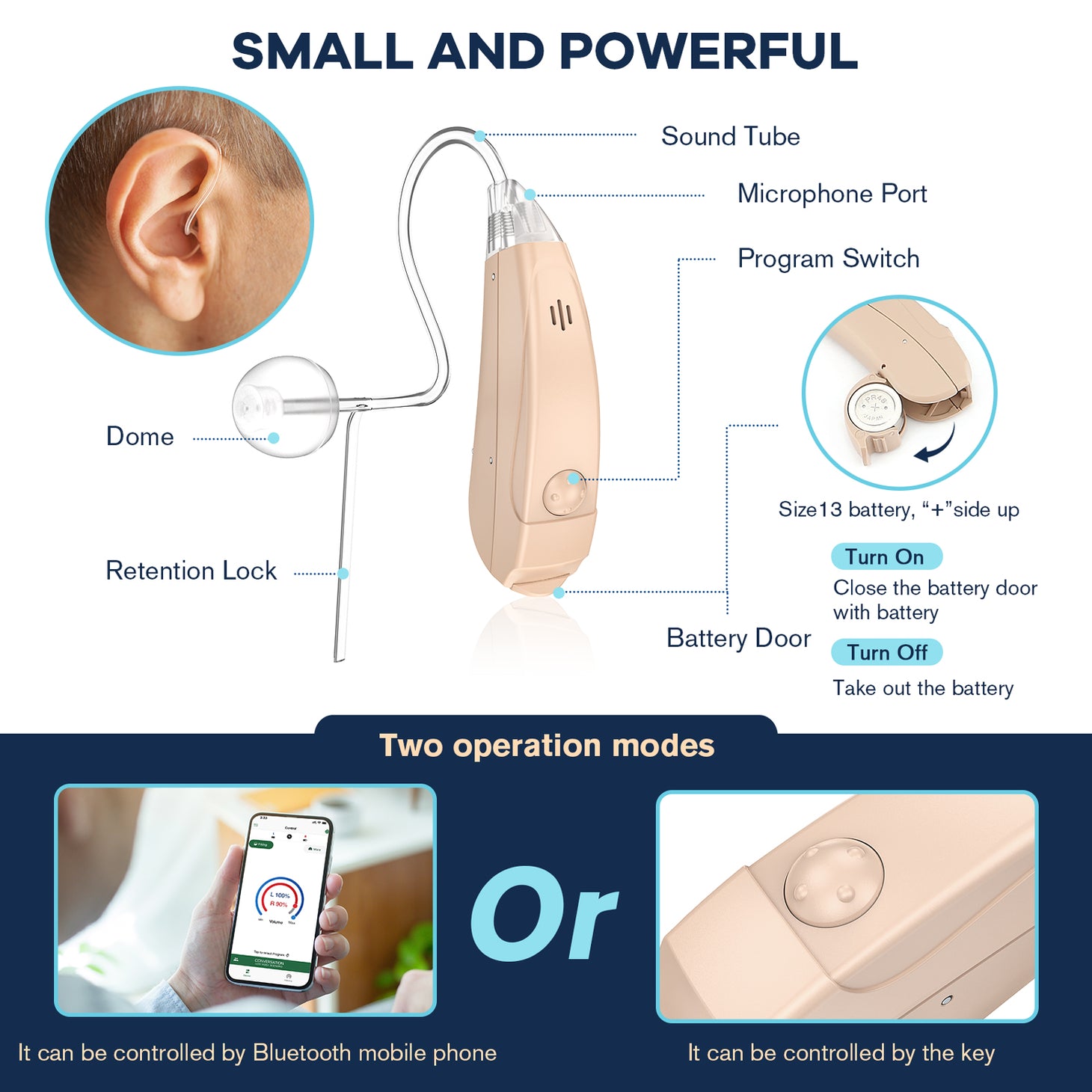Bluetooth hearing aids have revolutionized the way individuals with hearing loss experience the world around them. These advanced devices not only provide enhanced sound quality but also offer seamless connectivity to various audio sources, such as smartphones, televisions, and music players. However, the cost of Bluetooth hearing aids can vary significantly, and understanding the factors that influence their pricing is crucial for consumers.

Technology and Features
One of the primary factors that contribute to the cost of Bluetooth hearing aids is the technology and features they offer. Advanced signal processing, noise reduction, and feedback cancellation are just a few of the sophisticated features that can drive up the price of these devices. Additionally, the integration of Bluetooth connectivity and compatibility with different operating systems and devices can also impact the overall cost.
For instance, a Bluetooth hearing aid that offers dual connectivity, allowing the user to simultaneously connect to a smartphone and a television, will likely be more expensive than a model with single-device connectivity. Similarly, hearing aids with advanced sound processing algorithms and customizable settings may come with a higher price tag due to the complexity of their technology.
Design and Aesthetics
Another significant factor that influences the cost of Bluetooth hearing aids is their design and aesthetics. Manufacturers invest in research and development to create sleek, discreet, and comfortable designs that cater to the diverse preferences of consumers. Additionally, the use of premium materials, such as titanium or hypoallergenic metals, can contribute to the overall cost of the device.
Furthermore, the inclusion of additional features, such as rechargeable batteries, water and dust resistance, and customizable color options, can also impact the pricing of Bluetooth hearing aids. Consumers who prioritize aesthetics and convenience may opt for hearing aids with these added features, even if they come with a higher price point.
Professional Services and Support
When considering the cost of Bluetooth hearing aids, it's essential to factor in the professional services and support provided by audiologists and hearing healthcare professionals. The expertise and guidance offered during the selection, fitting, and adjustment of Bluetooth hearing aids are invaluable and contribute to the overall cost of the devices.
Additionally, ongoing support, maintenance, and warranty services provided by hearing care professionals are essential considerations for consumers. The level of support and aftercare offered by the provider can influence the perceived value of the Bluetooth hearing aids and may justify a higher price for some individuals.
Market Competition and Pricing Strategies
The competitive landscape of the hearing aid market and the pricing strategies adopted by manufacturers and retailers also play a significant role in determining the cost of Bluetooth hearing aids. Factors such as brand reputation, product positioning, and distribution channels can impact the pricing of these devices.
Manufacturers may differentiate their products based on technological advancements, exclusive features, or targeted user demographics, which can result in a wide range of pricing options for consumers. Additionally, retailers may offer bundled services, financing options, or promotional discounts that influence the final cost of bluetooth hearing aids.
Understanding the cost factors of Bluetooth hearing aids in today's market is essential for consumers seeking the best value for their investment. By considering the technology and features, design and aesthetics, professional services and support, and market competition and pricing strategies, individuals can make informed decisions when choosing the most suitable Bluetooth hearing aids for their needs.


